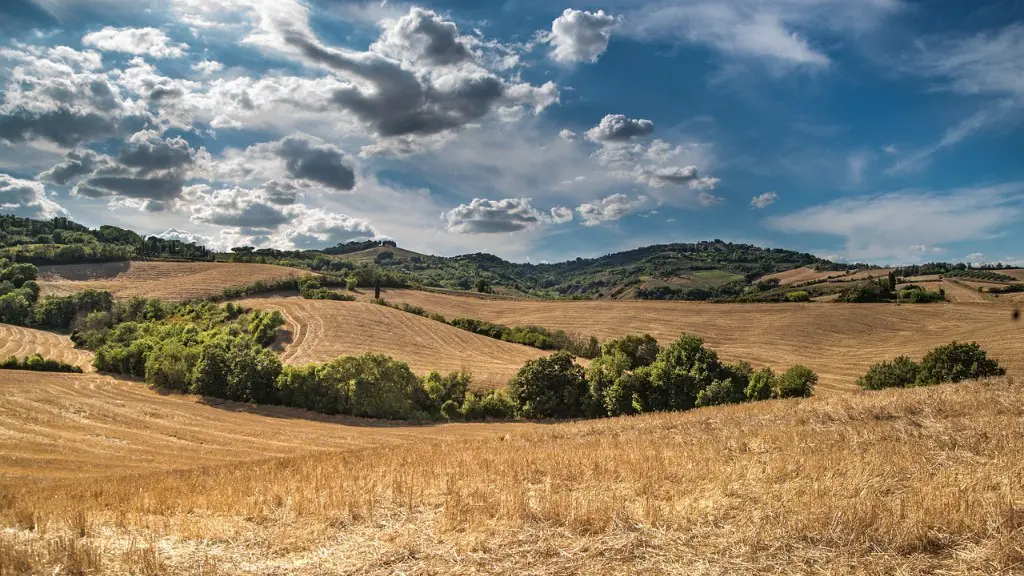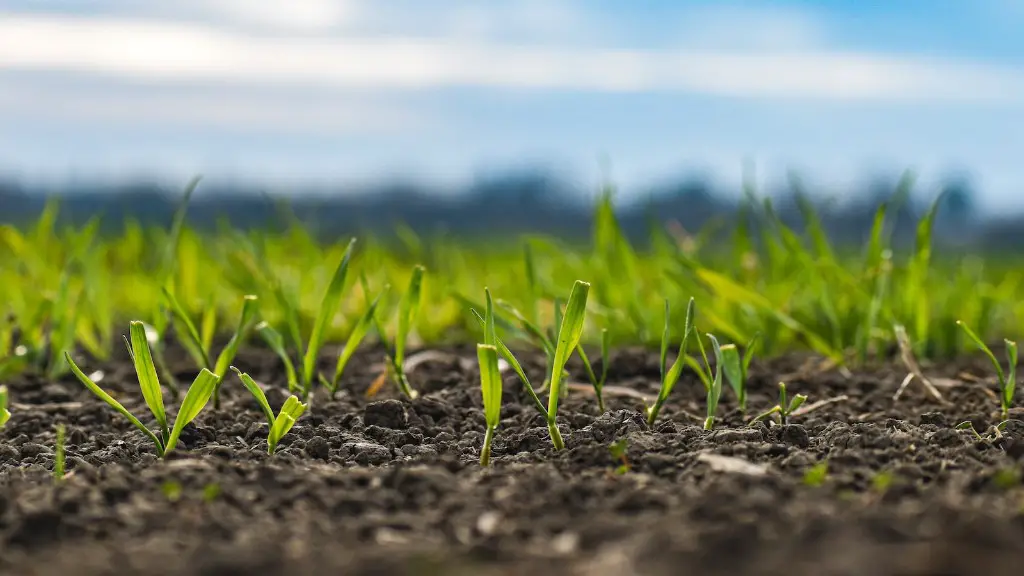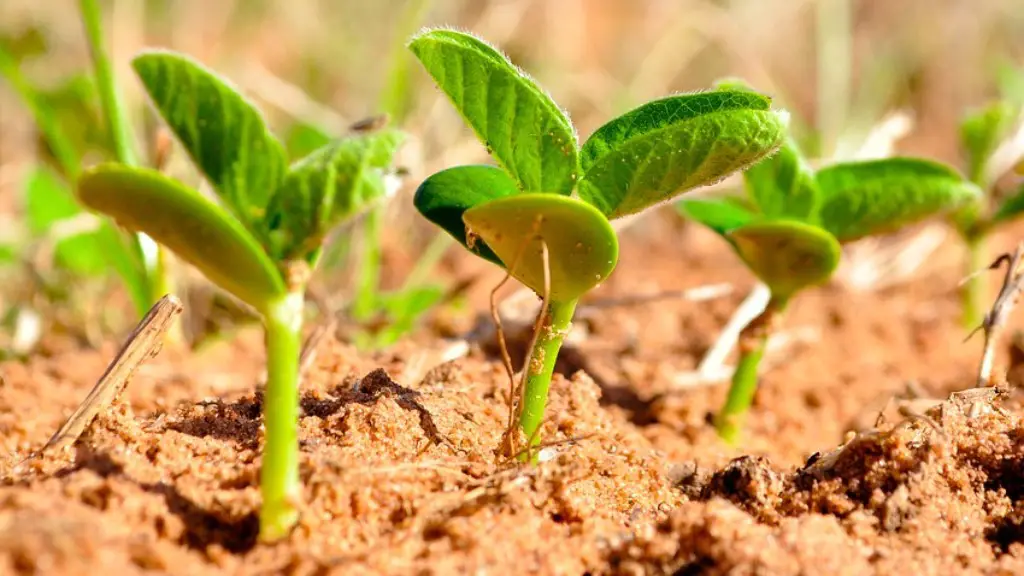As the human population continues to grow, the demand for food will increase. Agricultural production must increase in order to meet this demand. However, teaching agriculture in schools is not the most effective way to increase production. There are many reasons why agriculture should not be taught in schools. First, agricultural production is a complex process that requires a great deal of knowledge and experience. Second, agricultural production is highly dependent on the local environment, which means that it is difficult to transfer knowledge from one location to another. Third, agricultural production is often labor-intensive and requires access to land and other resources that may not be available to all schools. Finally, schools are not well equipped to provide the necessary resources and infrastructure for effective agricultural production.
There are a few reasons why agriculture should not be taught in schools. First, farming is a very specific vocation that requires a lot of experience and knowledge to do well. It is not something that can be taught in a classroom setting. Second, agriculture is a very labor-intensive profession, and it is not realistic to expect students to engage in that kind of work during school hours. Finally, farming is something that is best learned by doing, not by listening to lectures or reading textbooks.
Should AG be taught in schools?
Including agriculture and farming as major disciplines during schooling will help all children understand food production and management. This knowledge adds to their exposure and helps them better understand the seasonality of crops, harvesting and transportation. It is important for children to understand where their food comes from and how it is produced in order to make informed decisions about what they eat. Learning about agriculture and farming can also help children appreciate the hard work that goes into producing the food we eat.
Agriculture is the leading source of pollution in many countries. Pesticides, fertilizers and other toxic farm chemicals can poison fresh water, marine ecosystems, air and soil. Agricultural pollution is a major problem because it can contaminate food and water supplies, and it can also harm the health of people and animals.
Why should kids learn about agriculture
Teaching children about agriculture can help them understand where their food comes from and the importance of protecting our farms. It can also help them develop important life skills and knowledge, which can ultimately benefit our communities.
Agricultural education is important for the future of our country and our world. It teaches students about the process of food production and helps them understand where their food comes from. It also prepares students for careers in agriculture and related fields. Agricultural education is essential for the future of our country and our world.
Is teaching agriculture in the elementary grades important?
Agricultural and food education is important for improving the quality of life for all people. Farmers can use these techniques to increase production, conserve resources, and provide nutritious foods. This type of education can help people live healthier and more productive lives.
Agriculture in the Classroom (AITC) programs help students learn core curriculum concepts by providing authentic, agricultural-based content. This content helps students understand science, social studies, language arts, and nutrition concepts in a real-world context. AITC programs improve student achievement and help students develop critical thinking and problem-solving skills.
What is the negative impact of agriculture?
Agriculture is one of the leading causes of environmental degradation. By contributing to climate change, deforestation, biodiversity loss, and other environmental problems, agriculture is jeopardizing the health of our planet. To make matters worse, many of the practices used in agriculture (such as irrigation and genetic engineering) can cause further environmental damage. It is crucial that we take steps to address the environmental impact of agriculture and protect our planet for future generations.
The government has implemented financial assistance programs that enable farmers to reduce their greenhouse gas (GHG) emissions from enteric fermentation and soil manure management. These programs are having a positive impact on farmers’ ability to reduce their emissions and help protect the environment.
What are the main disadvantages of agriculture
There are a few disadvantages of industrial agriculture, as it can lead to deforestation, soil degradation, and water pollution. Additionally, it can have a negative impact on natural habitats, as well as contribute to climate change.
Agriculture is one of the most important sectors of any economy. It is the main source of raw materials for industries, contributes to international trade, and is a major source of revenue for a nation. Agriculture also provides employment for millions of people around the world.
In addition to being essential to the economy, agriculture is also crucial to a country’s development. Agriculture can help heal the environment, as well as provide food and other resources during times of war.
Why is agriculture important to middle schoolers?
Teaching kids about agriculture can help them understand how the world around them works and how they can impact it. Agriculture is a great way to learn about the cycle of life, how things grow and die, and how we can impact our environment. teaching kids about agriculture can help them learn other important aspects about life, such as the importance of taking care of our environment and the role we play in the world.
The low performance in agriculture is due to a number of factors, including lack of resources and large numbers of students per class. This makes it difficult for the teacher to use practical work in teaching some concepts, which can lead to lower performance in agriculture.
What are 3 effects of agriculture
While agriculture can have positive effects on the environment, such as increasing oxygen production and improving the climate, it can also cause negative impacts, such as inorganic nitrate pollution, pesticide pollution, and salinity problems. These problems are especially prevalent in regions where agriculture is intensive.
A career in agriculture can be extremely rewarding and gratifying. It is an industry that is essential to our survival and one that is constantly evolving. If you have a passion for agriculture and are looking for a challenging and rewarding career, then this job is certainly for you.
When did agriculture start being taught in schools?
The Federal Smith-Hughes Act of 1917 established funding for high schools across the US to start classes in agriculture. These classes started in small rural schools and only farm boys were allowed in the classes.The main purpose of these classes was to teach practical farming techniques to the next generation of farmers. However, the classes also provided a general education in other subjects such as science and mathematics. Over time, the classes became more popular and were eventually open to all students, regardless of their background.
There are many factors to consider when choosing what grade level to teach. If you’re more interested in helping children develop good thinking skills as they mature, grade 4 is a good place to start. And opportunities to teach college-style academics really increase from the sophomore year of high school onward. The job market also plays a role in your decision here of course. Ultimately, it’s up to you to decide what you’re most interested in and what you think you’ll be best at. Whichever grade level you choose, make sure you’re passionate about it and prepared to engage your students in meaningful learning.
What are the 3 components of Ag education
An agricultural education program is made up of three important parts: Classroom Instruction, FFA and Supervised Agricultural Experience (SAE). Students learn best by doing, and an SAE gives them the opportunity to put what they’ve learned in the classroom into practice. With the help of their agricultural teachers, students develop an SAE project based on one or more of the SAE categories. This hands-on experience is essential to becoming a successful agriculturalist.
Over the last 25 years, the field of agriculture education has evolved greatly. Today, there are over 11,000 middle and high school ag teachers in all 50 states, Puerto Rico and the Virgin Islands. Ag programs may look different from school to school, but they all provide students with essential knowledge and skills related to the production of food and other agricultural products.
Conclusion
There are many reasons why agriculture should not be taught in schools. For one, agriculture is a complex and ever-changing field that requires specialized knowledge and skills. Additionally, agriculture is a heavily regulated industry with strict laws and regulations governing everything from seed selection and planting to crop maintenance and harvest. This regulatory environment can make it difficult for schoolteachers to keep up with the latest changes and requirements. Finally, agriculture is a physically demanding industry that often requires long hours and challenging working conditions. This can make it difficult for schoolteachers to provide the hands-on training and supervision that students would need to be successful in the field.
There are many reasons why agriculture should not be taught in schools. First, it is a very complex subject and would require a lot of time and effort to teach properly. Second, there are already many other subjects that are taught in schools, and adding another one would only overcrowd the curriculum. Third, there are many people who are already knowledgeable about agriculture and who could teach it more effectively than teachers who are not familiar with the subject.Fourth, agriculture is not relevant to many people’s lives and so they would not see the need to learn about it. In conclusion, there are many reasons why agriculture should not be taught in schools, and these reasons outweigh the benefits that teaching it would bring.





